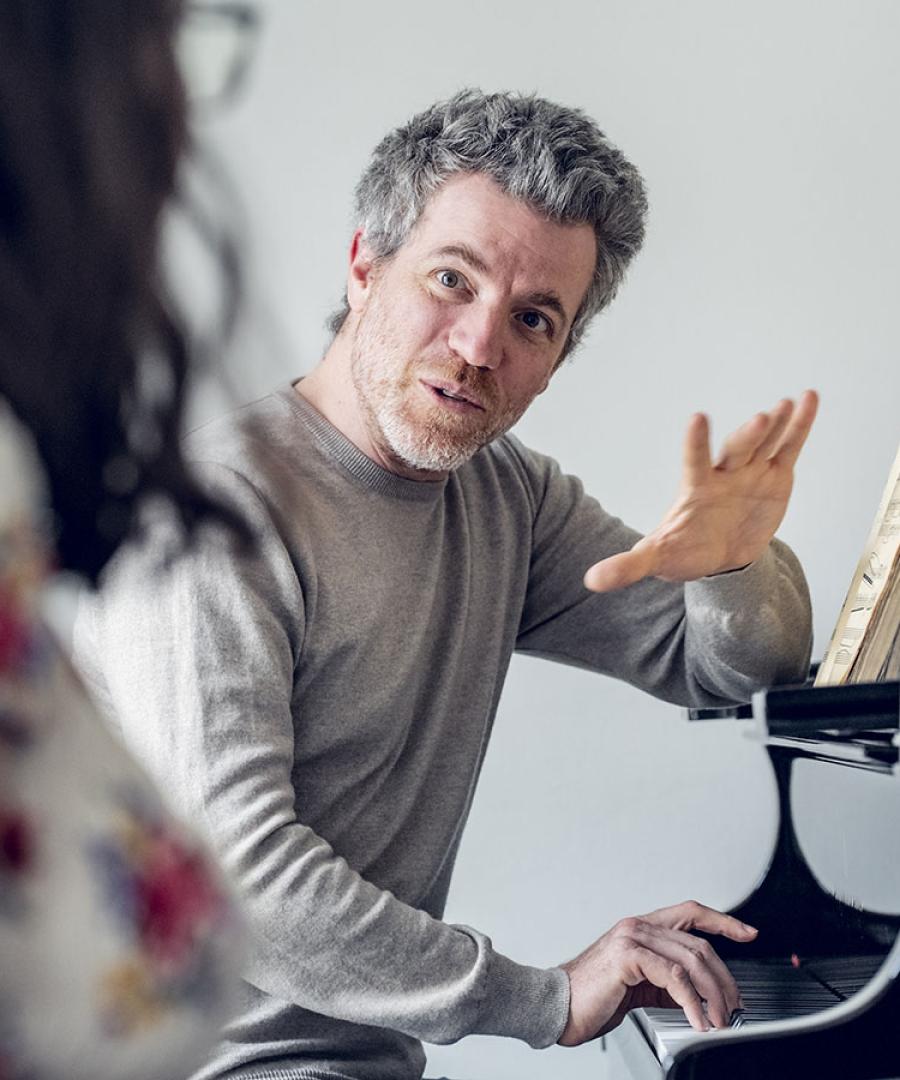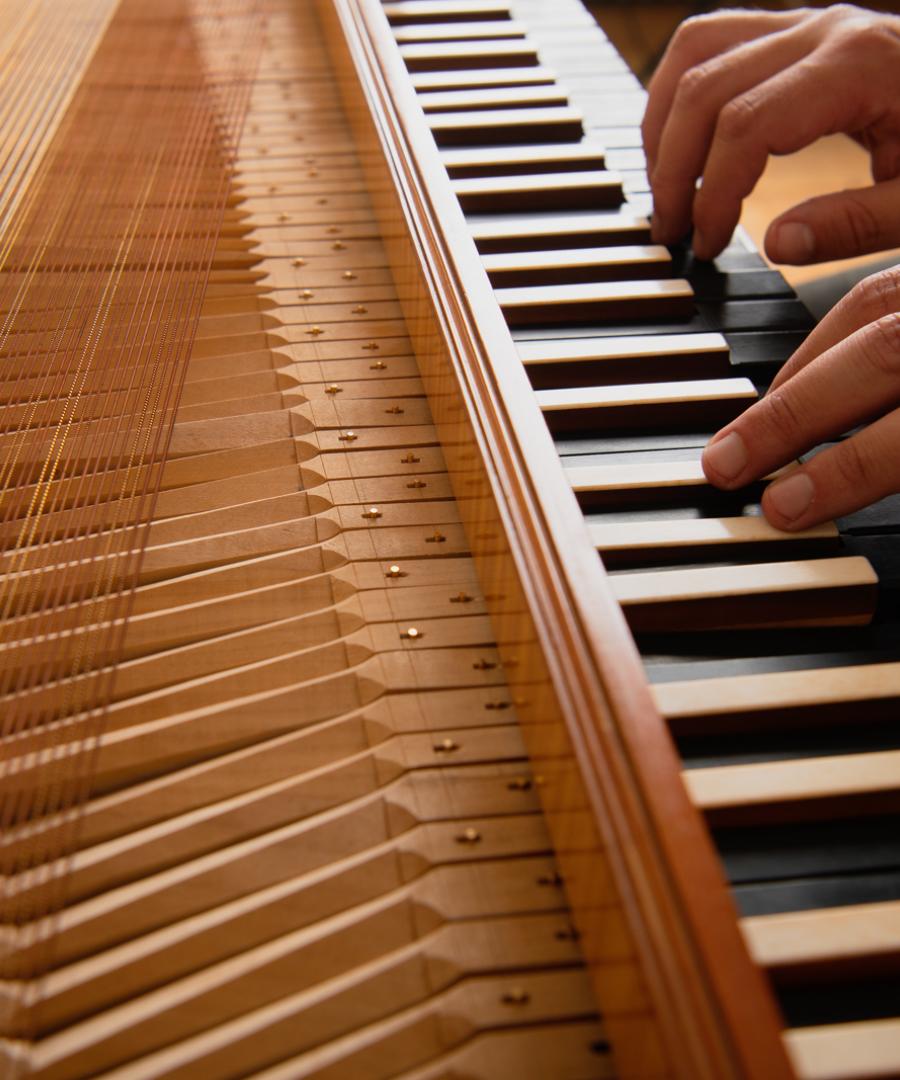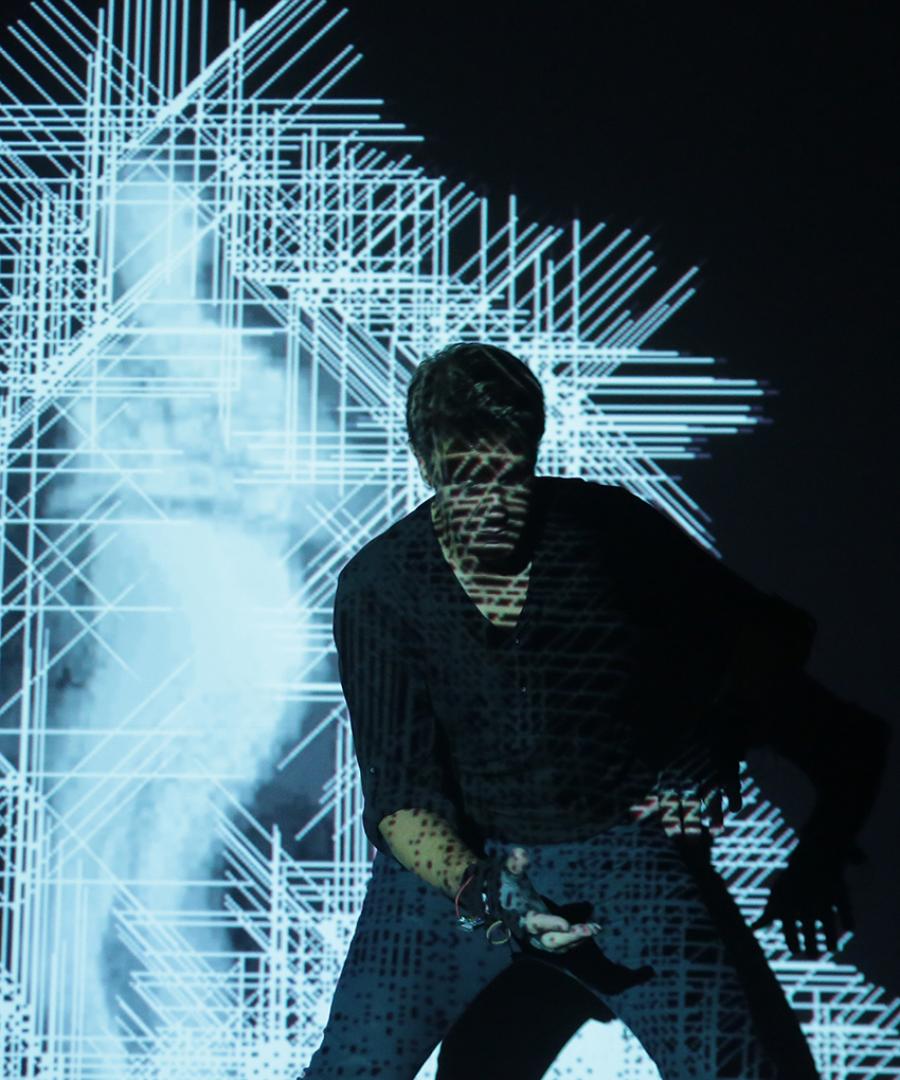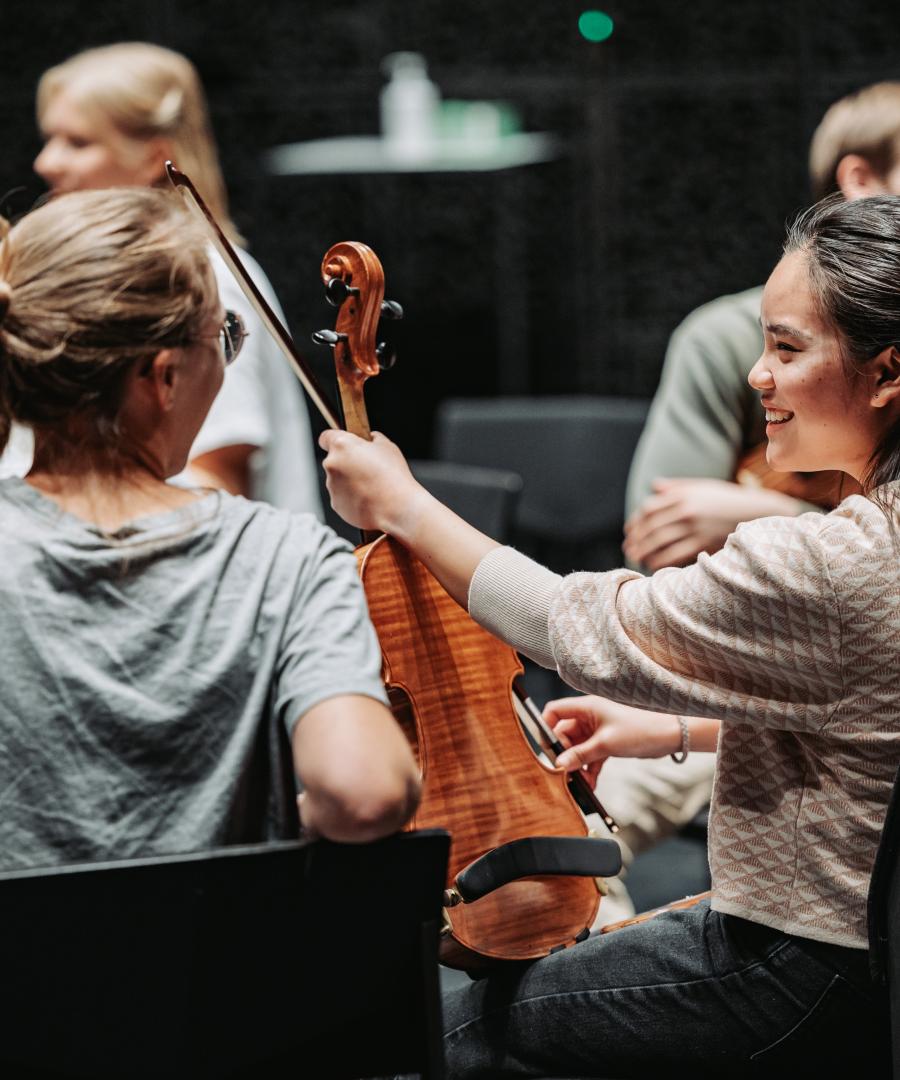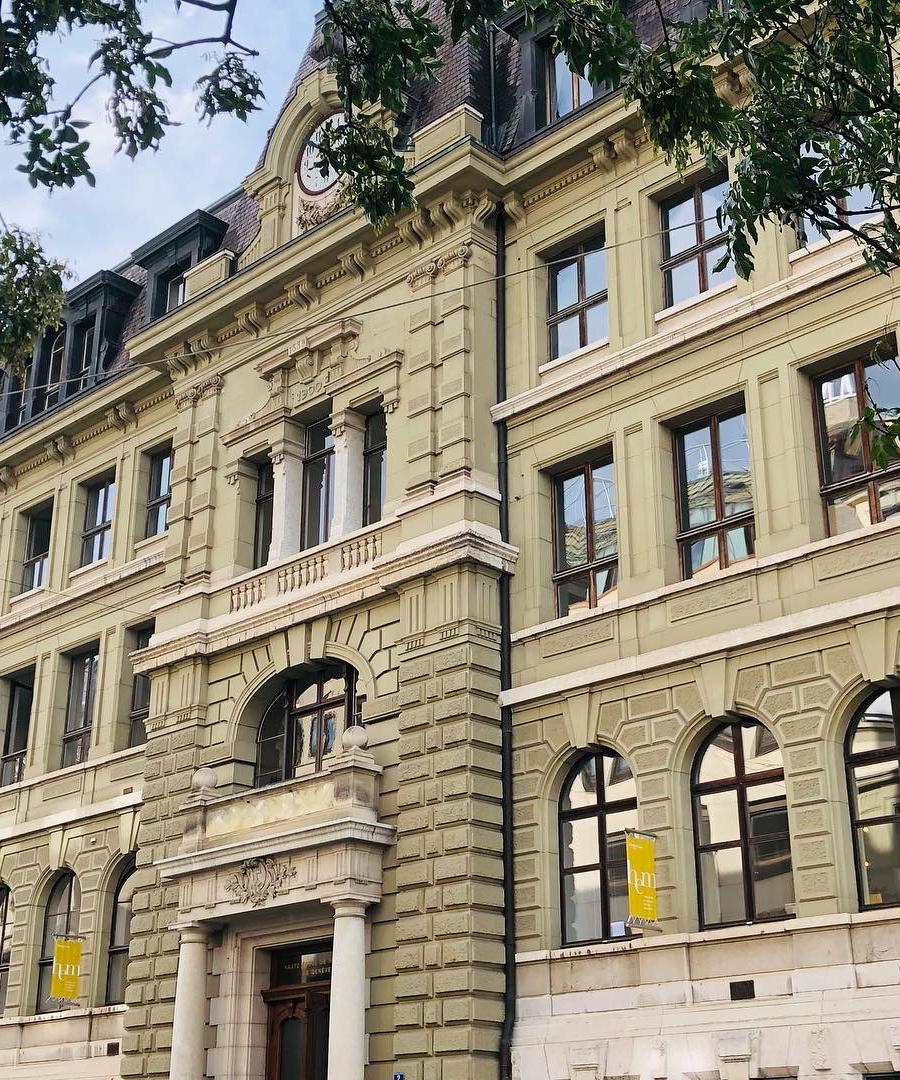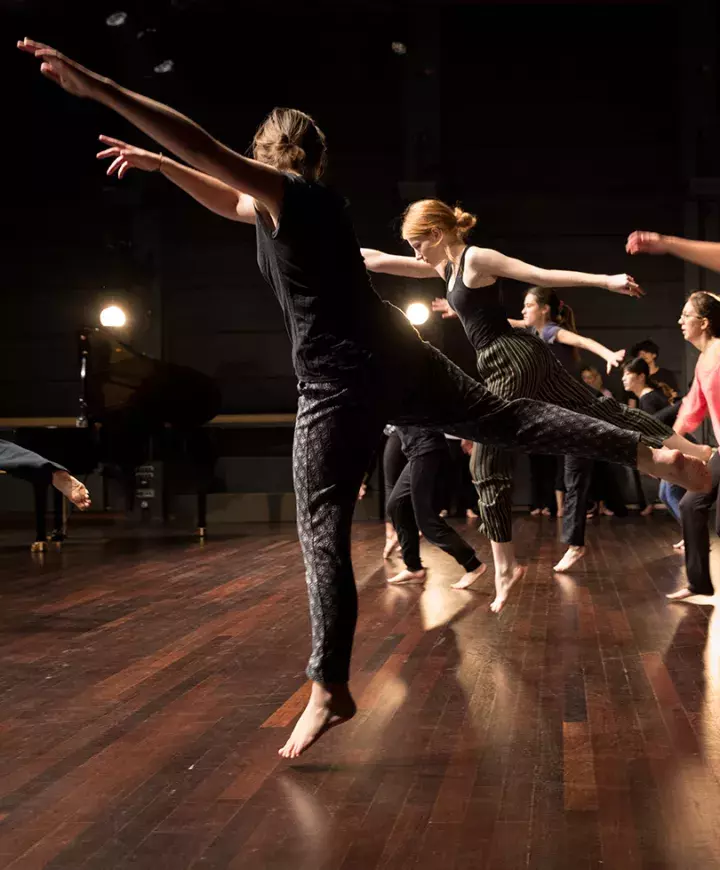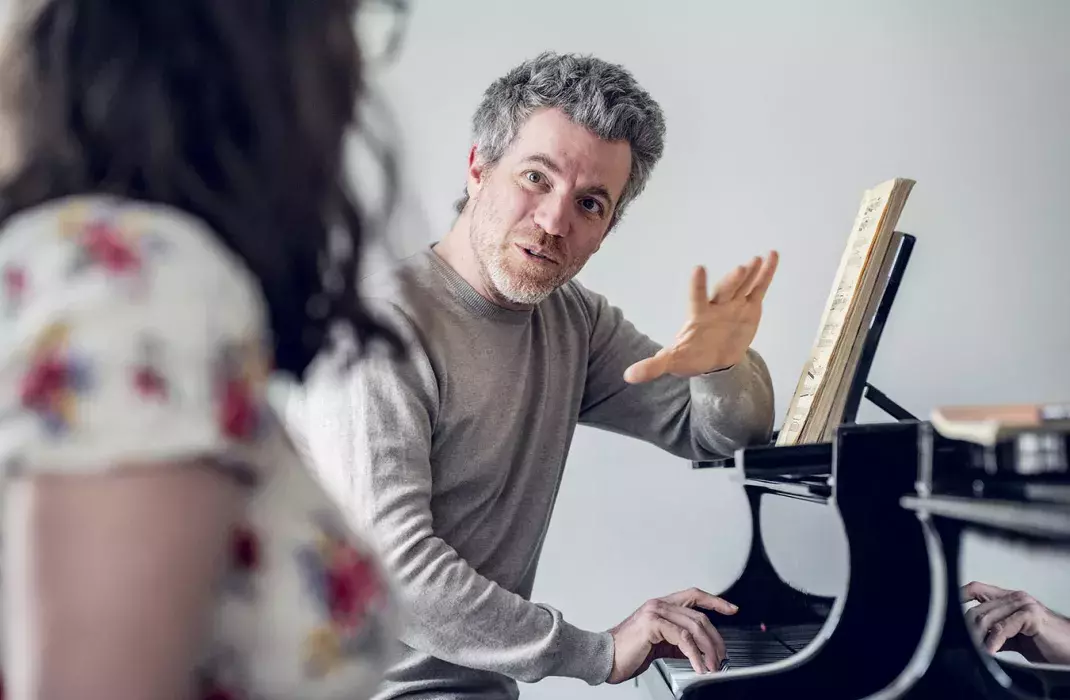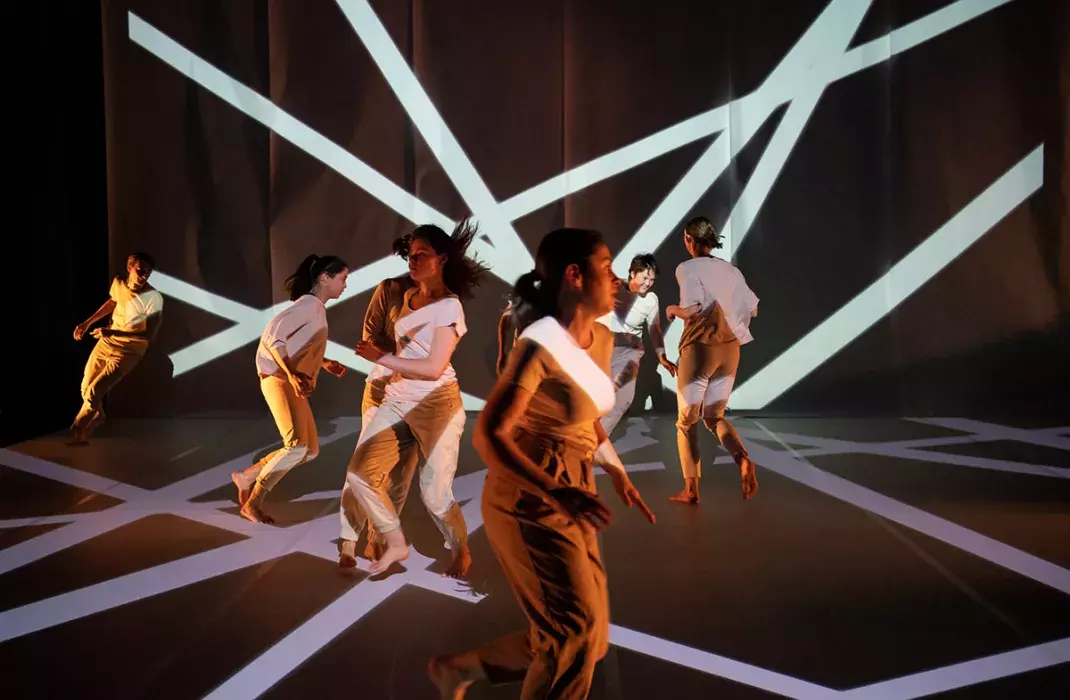- Studies
- Disciplines
- Research
- Events
- The school
Jaques-Dalcroze Eurhythmics
This area of study enables the students to get their training in a setting of active pedagogy, promoting musical learning through bodily movement and improvisation.
It gives them the didactic qualifications needed for the teaching of rhythm, basic musical training (music theory) and an initiation in instrumental improvisation at music schools, conservatoires, state schools, at socio-cultural associations or in private classes.
The teaching of music through bodily experience is seeing ever-increasing levels of development and interest. The Jaques-Dalcroze teaching method offers the chance to find jobs at national and international level. It is taught in various countries in Europe (Italy, France, Spain, Germany, the UK, Belgium, the Netherlands, Austria, Sweden, Finland, Denmark, Poland, Russia), Asia (Japan, Taiwan, Korea), North and South America (the USA, Canada, Mexico, Venezuela, Argentina, Chile, Brazil), and in Australia. The institutions that dispense musical and artistic teaching (dance, theatre) are offering more and more job opportunities for students holding qualifications in Jaques-Dalcroze Eurhythmics. They are interested in incorporating into the courses they offer this active method of music teaching, achieved through lived bodily experience, with improvisation used as a means of appropriating knowledge and know-how.
Study plan
Abbreviations :
e = marked exam
p = validation by participation
rs = internship report
ce = co-assessment
cc = continuous assessment
SA = autumn semester
SP = spring semester
A1, A2, etc. = first, second year, etc. S1, S2, etc. = first, second semester, etc.
Admission criteria
In addition to the general criteria for access to the Master’s, the following special conditions are requested:
- Potential for artistic development in music and movement, making it possible to achieve, over the two years of the Master’s, a high level of professional competence.
- The ability to lead an artistic project in an increasingly autonomous way.
- Proven pedagogical aptitudes.
- An aptitude for undertaking research under the guidance of a mentor.
Admission to this study area takes place on the basis of a competition involving an assessment of artistic and pedagogical skills.
For students in the third year of a BA, an opening module designed as preparation for admission to this Master’s is offered.
Study programme
Main training
Since the Jaques-Dalcroze teaching method is active and creative, the classes offered in this module (rhythm, piano, instrumental improvisation and improvisation of movement, etc.) are aimed at developing the student’s personal autonomy and artistic expression.
Special training
Significant emphasis is placed on pedagogy and the Jaques-Dalcroze method, applied to various non-professional teaching environments: children, adolescents, adults, senior citizens or people with special needs. Thanks to observation or supervised teaching internships and thanks to replacements, the student is very quickly plunged into practical experimentation relating to their future professional life. Analytical ability, the ability to make proposals, and a capacity for showing invention and adaptability are particularly sought-after in this module.
Complementary and optional training
Part of this module is left to a free choice by the student, who can thus supplement their training depending on their needs and professional projects.
Master’s Project
The Master’s project takes the form of an artistic production, written work and an oral presentation. In these three productions, the student must demonstrate artistic abilities and, equally, theoretical abilities and critical thinking. Tests of practical pedagogy, in the form of lessons given to children or adolescents, round off the programme.
